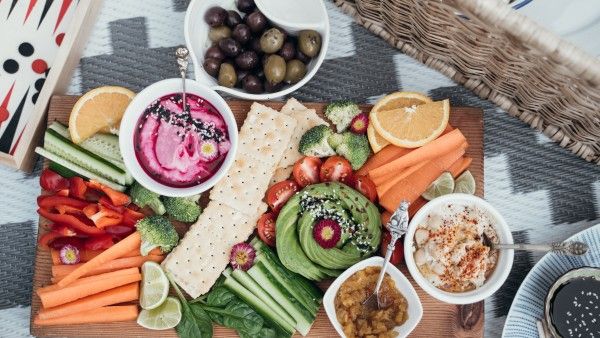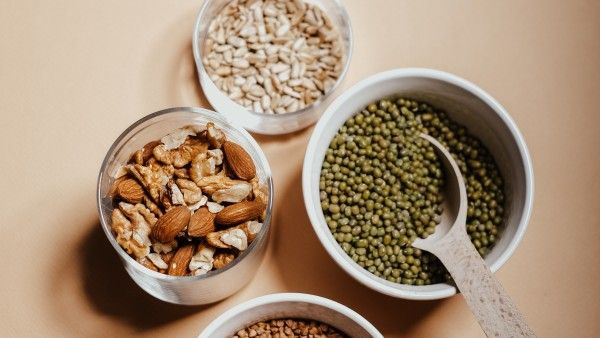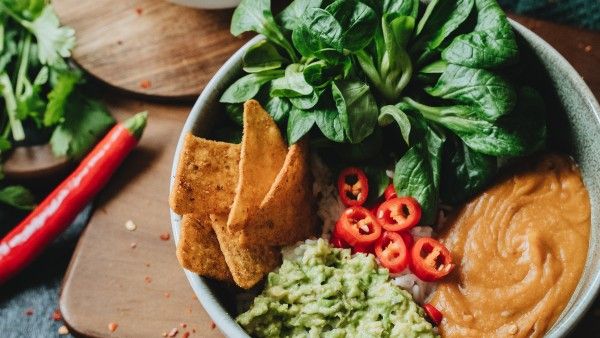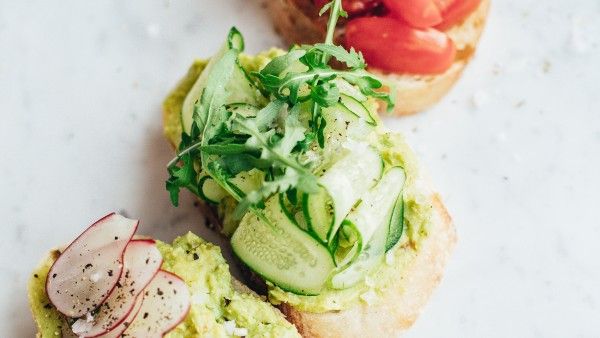Just In
- 16 hrs ago

- 16 hrs ago

- 19 hrs ago

- 20 hrs ago

Don't Miss
- Movies
 Pavi Caretaker Box Office Collection Day 1 Prediction: Dileep's Movie Expected To Open Strongly
Pavi Caretaker Box Office Collection Day 1 Prediction: Dileep's Movie Expected To Open Strongly - Sports
 Who Won Yesterday's IPL Match 41? SRH vs RCB, IPL 2024 on April 25: Royal Challengers Bangalore End Losing Streak
Who Won Yesterday's IPL Match 41? SRH vs RCB, IPL 2024 on April 25: Royal Challengers Bangalore End Losing Streak - Finance
 Bajaj Group Stock Declares Rs. 60/Share Dividend: Buy Ahead of Record Date On 28 June?
Bajaj Group Stock Declares Rs. 60/Share Dividend: Buy Ahead of Record Date On 28 June? - News
 MEA Dismisses US Human Rights Report On Manipur As 'Biased And Misinformed'
MEA Dismisses US Human Rights Report On Manipur As 'Biased And Misinformed' - Automobiles
 Royal Enfield Unveils Revolutionary Rentals & Tours Service: Check Out All Details Here
Royal Enfield Unveils Revolutionary Rentals & Tours Service: Check Out All Details Here - Technology
 Elon Musk’s X Is Launching a TV App Similar to YouTube for Watching Videos
Elon Musk’s X Is Launching a TV App Similar to YouTube for Watching Videos - Education
 AICTE introduces career portal for 3 million students, offering fully-sponsored trip to Silicon Valley
AICTE introduces career portal for 3 million students, offering fully-sponsored trip to Silicon Valley - Travel
 Escape to Kalimpong, Gangtok, and Darjeeling with IRCTC's Tour Package; Check Itinerary
Escape to Kalimpong, Gangtok, and Darjeeling with IRCTC's Tour Package; Check Itinerary
Nutrition Source For Vegans And Vegetarians: List Of Foods And Supplements
A vegan diet is comprised of cruelty-free plant-based foods and plant foods such as vegetables, fruits, grains, nuts, seeds etc. A vegan individual refrains from consuming foods that come from animals, including dairy products, eggs and honey. Amidst the numerous benefits, the vegan lifestyle and diet offer, one of the main challenges linked to this diet is nutritional deficiencies.
While adopting a vegan lifestyle can have several health benefits such as the reduced risk of heart disease and type 2 diabetes, healthy weight management, improved metabolism, etc., a nutritional deficiency occurs when essential nutrients are absent for growth and health and can affect bodily functions, suggesting that a vegan diet lacks some of the important nutrients that are required for the body [1][2].
The common nutrient deficiencies that arise from following a vegan diet are zinc, Vitamin D and B12, Omega-3 fatty acids, iron, etc. And these can be managed with the help of vegan substitutes and supplements. Take a look.

1. Vitamin B12
The water-soluble vitamin is important for the functioning of the red blood cells and the nervous system. This deficiency may lead to anaemia, infertility, fatigue, tingling in the feet or tips of the palm fingers and even depression [3]. Vegetarians and vegans are at a higher risk of developing vitamin B12 deficiency. The daily recommended intake of vitamin B12 is 2.4 mcg per day for adults, 2.6 mcg per day during pregnancy, and 2.8 mcg per day while breastfeeding.
Food sources: As doctors suggest, the only way to get the right amount of vitamin B12 into your body is by eating fortified foods or taking a vitamin B12 supplement [4]. You can buy vitamin B12 fortified plant milk, soy products and cereals.
2. Vitamin D
Vitamin D deficiency can lead to decreased bone density and affect the thyroid gland's function. The fat-soluble vitamin plays a major role in managing immune function, mood, memory, and muscle recovery [5]. The daily recommended intake of vitamin D for children and adults is 15 mcg per day. Pregnant or lactating women and the elderly should consume 20 mcg per day.
Food sources: As very few natural foods contain vitamin D, supplementation is necessary. Mushrooms exposed to UV light and vitamin D-fortified soy milk, orange juice and ready-to-eat cereals are good options for vegans and vegetarians.

3. Zinc
A nutrient necessary for the overall functioning of your body, metabolism and immune system, zinc deficiency can result in hair loss, eye and skin lesions, and delayed wound healing [6]. The daily recommended intake of zinc is 8-11 mg per day for adults. It increases to 11-12 mg for pregnant women and 12-13 mg for lactating women [7].
Food sources:Food sources of zinc include whole grains, wheat germ, tofu, tempeh, sprouted beans, legumes such as lentils, beans and chickpeas, nuts, seeds, oats etc. Vegans can also consider taking zinc supplements after discussing them with the doctor.
4. Omega-3
Omega-3 is an unsaturated fatty acid that helps anti-inflammatory processes in the body and helps reduce the risk of heart and blood vessels diseases and may help manage depression symptoms. The symptoms of omega-3 fatty acid deficiency include fatigue, poor memory, dry skin, heart problems, mood swings or depression, and poor circulation [8]. The daily recommended intake of omega-3 fatty acids is 200-300 mg per day.
Food sources for omega-3 fatty acids include flax seeds, chia seeds, walnuts, hemp seeds, and soybeans. Studies show that using algae oil can help get the recommended amount of omega-3s for vegans [9].

5. Iron
Iron is a mineral component of red blood cells and is essential for growth and development. The symptoms of iron deficiency include extreme fatigue, weakness, pale skin, brittle nails, headache etc. The daily recommended intake of iron is 8 mg for adult men and post-menopausal women, 18 mg for adult women, and 27 mg for pregnant women [10].
Food sources:Food sources for iron include cruciferous vegetables like cauliflower, spinach, cabbage, broccoli, beans, lentils, peas, soybeans, dried fruit, nuts, and seeds. Iron-fortified foods, such as cereals, enriched bread, and some plant milk are also beneficial.
6. Calcium
An essential mineral for bone and teeth health, the daily recommended intake of calcium is 1,000 mg per day for most adults and increases to 1,200 mg per day for adults over the age of 50 [11]. Vegans are encouraged to consume more than 525 mg of calcium, which otherwise can increase the risk of bone fractures (especially in old age).
Food sources:Plant-based food sources of calcium include bok choy, kale, mustard greens, turnip greens, watercress, broccoli, chickpeas, calcium-set tofu, and fortified plant milk or juices. Other foods include calcium-fortified juice, calcium-set tofu, leafy green vegetables including collard greens, turnip greens and kale, broccoli, beans including soybeans, chickpeas and black beans and almonds and almond butter.

7. Iodine
The health benefits of iodine are many, from improving thyroid health, reducing goitre risk, to improving cognitive function and birth weight if an infant, the nutrient is essential for your body. A lack of iodine in the diet can increase the risk of hypothyroidism, low energy levels, dry skin, tingling in your hands and feet, forgetfulness, depression, and weight gain [12]. The daily recommended intake of iodine for adults is 150 mcg, 220 mcg for pregnant women and 290 mcg for breastfeeding women. Studies show that vegans are at a higher risk of developing iodine deficiency [13].
Food sources:Food sources for iodine include seaweed and iodized salt. Moreover, the iodine levels in plants depend on the soil they grow in, that is, food grown close to the ocean tends to be higher in iodine [14].
8. Protein
One of the most debated topics in the diet world is - vegans don't get enough protein due to the restricted diet. And that is a topic that's been cleared time and over again. Proteins, which mainly comprise amino acids, is an important component required for the maintenance of cells and tissues. When the body lacks the adequate-protein, it hampers the functioning of the cells and the tissues and can lead to several health problems. The recommended daily intake of protein is 0.8 grams of protein per kilogram of body weight [15][16].
Food sources:Vegetarian and vegan sources of protein include legumes such as beans, peas and lentils, whole grains, soy products, nuts and nut butter, tofu, quinoa, chia seeds, broccoli, oats, sprouted grains and spirulina.

On A Final Note…
Following a vegan diet is not a risk. By substituting with the right nutrient sources and taking supplements, one can improve their overall well-being with the help of a diet rich in fruits, vegetables, nuts, seeds and other plant-based products. Regular exercise and a proper sleep schedule too should be followed.
-
 insyncVirat Kohli Is Bowled Over By ‘Mock Chicken Tikka': How To Make This Vegetarian/Vegan Recipe In Your Home
insyncVirat Kohli Is Bowled Over By ‘Mock Chicken Tikka': How To Make This Vegetarian/Vegan Recipe In Your Home -
 healthAmul’s New Protein Product For Gym-Goers And Vegetarians: Know More About ‘Super Milk’
healthAmul’s New Protein Product For Gym-Goers And Vegetarians: Know More About ‘Super Milk’ -
 healthWorld Vegan Month: 4 Best Alternatives For Your Favourite Indian Non-veg Curry!
healthWorld Vegan Month: 4 Best Alternatives For Your Favourite Indian Non-veg Curry! -
 beautyCruelty-Free Skincare Routine: How To Buy Vegan And Environment-Friendly Products?
beautyCruelty-Free Skincare Routine: How To Buy Vegan And Environment-Friendly Products? -
 healthPlant-Based Diet And Nutrition: Your Key To A Stronger Immune System!
healthPlant-Based Diet And Nutrition: Your Key To A Stronger Immune System! -
 healthFuel Your Energy Levels With These 5 Vegetarian Power Foods, Esp If You Are Over 30
healthFuel Your Energy Levels With These 5 Vegetarian Power Foods, Esp If You Are Over 30 -
 healthCan Vegan Protein Support Muscle Building?
healthCan Vegan Protein Support Muscle Building? -
 recipesQuick And Easy Vegan Mushroom Noodles Recipe
recipesQuick And Easy Vegan Mushroom Noodles Recipe -
 healthHow Plant-Rich Diets Help Lower Risk Of Early Death?
healthHow Plant-Rich Diets Help Lower Risk Of Early Death? -
 wellnessNew Year 2023: Vegan And Vegetarian Foods To Cure Hangover
wellnessNew Year 2023: Vegan And Vegetarian Foods To Cure Hangover -
 nutritionWhat Are The Key Nutrients Missing From Meat Substitutes?
nutritionWhat Are The Key Nutrients Missing From Meat Substitutes? -
 nutritionWhat Happens When You Stop Eating Eggs Completely?
nutritionWhat Happens When You Stop Eating Eggs Completely?


 Click it and Unblock the Notifications
Click it and Unblock the Notifications



